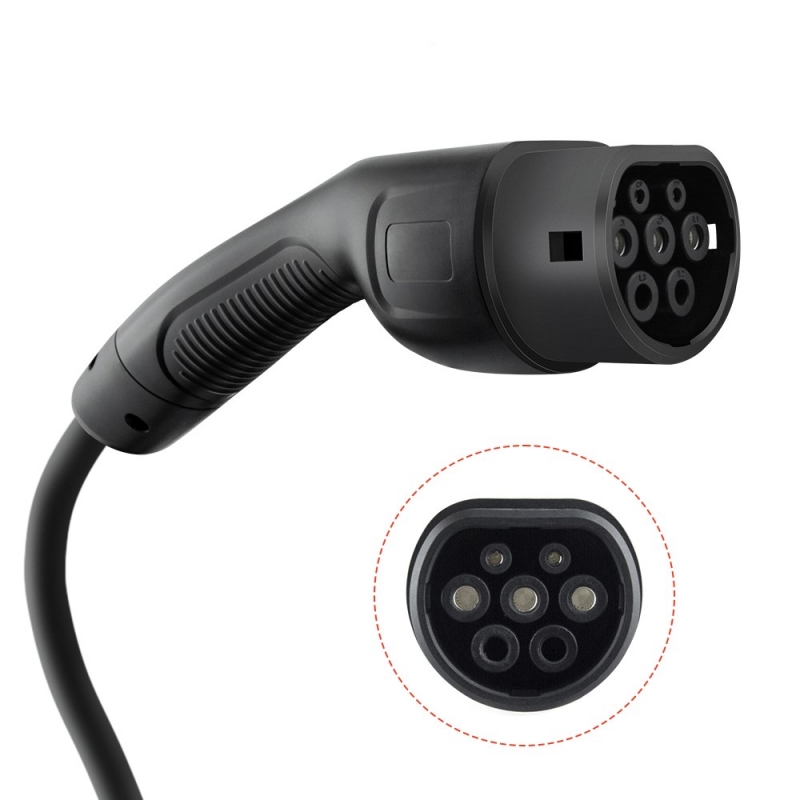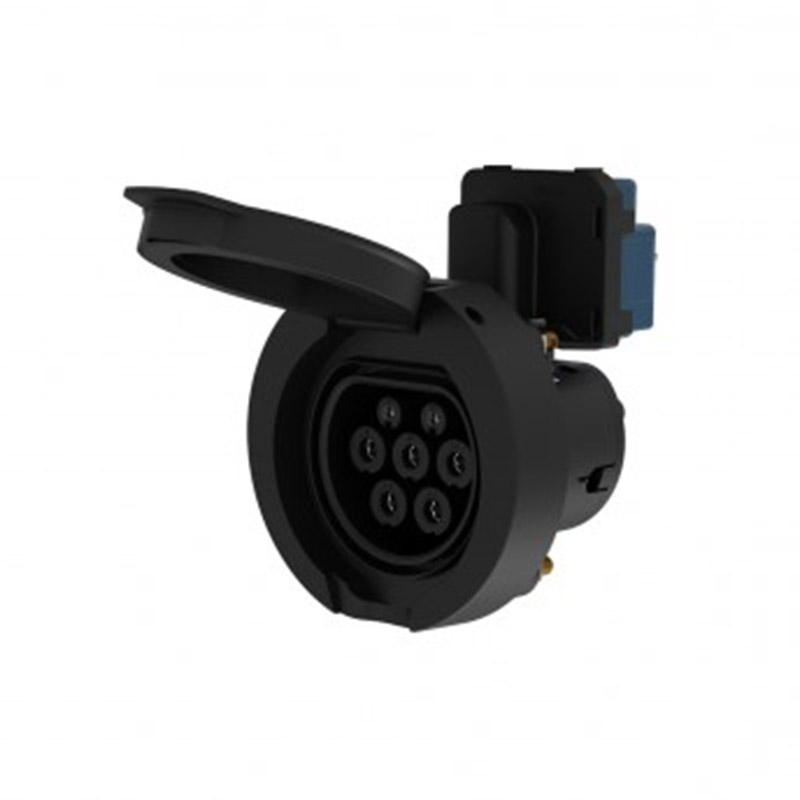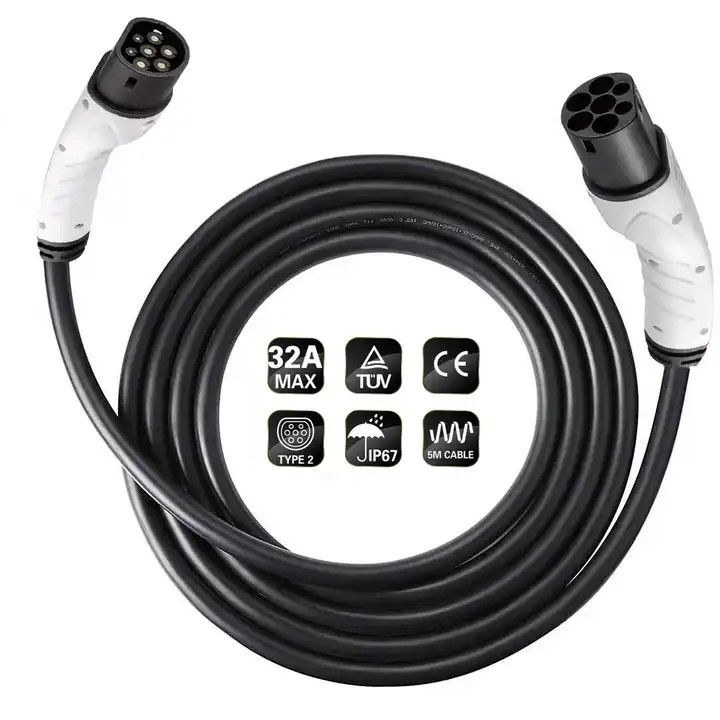EN Portable Charging Cable Description
※ It supports a maximum charging power of 22KW, and is backward compatible with 11KW, 7KW, and 3.5KW.
※ The screen size is 2.2 inches, which is convenient for users to operate and view relevant information.
※ The product has an appointment charging function, and the charging time can be set in advance, which is convenient for users to arrange charging plans reasonably.
※ The product is equipped with an LCD charging water light, which can effectively remind the charging status and progress when it is used at night.
※ Charging supports five-speed switching of current, and the maximum charging current can reach 32A, which can be adjusted according to different needs.
※ In addition, the front plug cable can be replaced with a suitable charging plug at any time according to the application scenario, which is convenient for adapting to different charging sockets.
※ The product can be equipped with WIFI/Bluetooth function, which is convenient for users to remotely control and monitor through mobile phones or other devices.
※ At the same time, the product has leakage current detection;
※ The protection level reaches IP66 design, which provides higher safety and protection.
※ This product can provide more customized needs.
How to choose EV chargers
Charging speed:
Look for a charger that offers a high charging speed, as this will allow you to charge your EV quickly. Level 2 chargers, which use a 240-volt outlet, are generally faster than Level 1 chargers, which use a standard 120-volt household outlet. Higher power chargers will charge your vehicle faster, but you'll need to make sure your vehicle can handle the charging power.
Power supply:
Different charging powers require different power supplies. 3.5kW and 7kW chargers require a single-phase power supply, while 11kW and 22kW chargers require a three-phase power supply.
Electric current:
Some EV chargers have the ability to adjust the electric current. This can be useful if you have a limited power supply and need to adjust the charging speed.
Portability:
Consider how portable the charger is. Some chargers are small and lightweight, making them easy to take with you on the go, while others are larger and heavier.
Compatibility:
Make sure the charger is compatible with your EV. Check the input and output specifications of the charger and ensure that it is compatible with your vehicle's charging port.
Safety features:
Look for a charger that has built-in safety features such as over-current, over-voltage, and over-temperature protection. These features will help protect your EV's battery and charging system.
Smart features:
Some EV chargers come with an app that allows you to manage charging, set schedules, track charging costs, and view the miles driven. These smart features can be useful if you want to monitor charging status while away from home, or if you want to reduce electric bills by scheduling charging during off-peak hours.
Cable Length:
Be sure to choose an EV charging cable that is long enough to reach the charge port of your car, as EV chargers come with cables of varying lengths, with 5 meters being the default.














